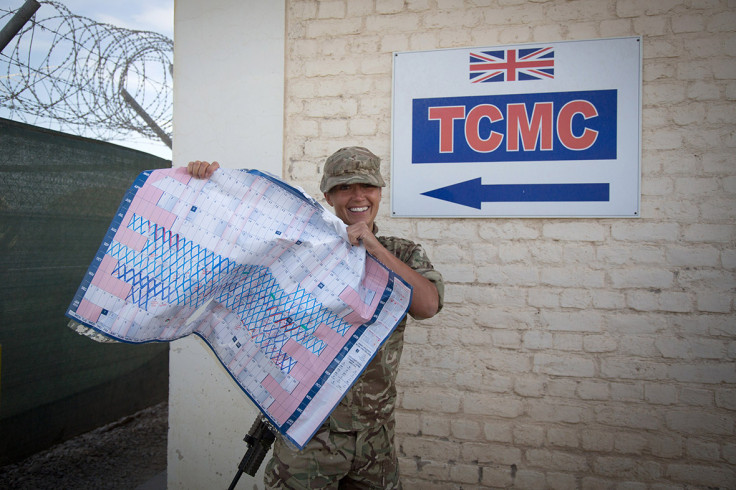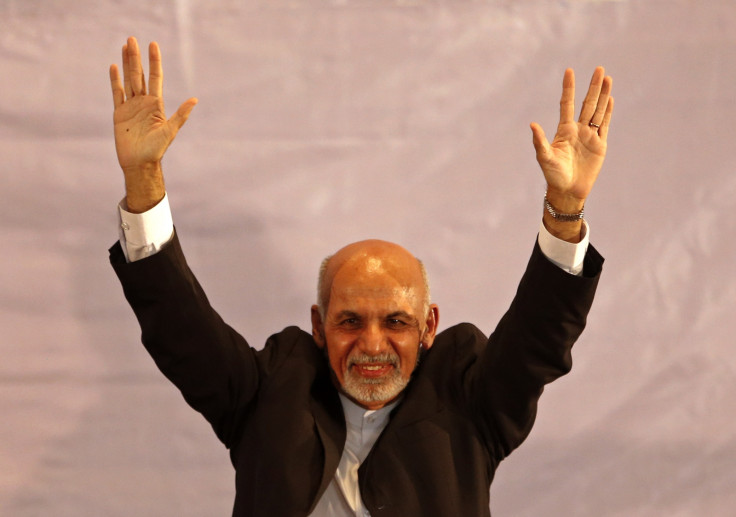Women fighting for justice in Afghanistan are treated with contempt by foreign donors

"Without international pressure, women's rights will be nowhere on the agenda," an activist in Kabul told us recently, regarding the new government of Ashraf Ghani.
Afghanistan's civil society organisations fought an often lonely battle for women's rights, accountability for war crimes and the need to end torture through the many dark days when the Karzai administration was determined to consign the issues to oblivion. With Karzai gone, the activists are hoping for a new chance to put rights back on the agenda at Kabul's presidential palace.
But when Afghanistan's foreign donors assembled at this month's London Conference on Afghanistan to reaffirm their support for the Afghan government, they shut out one of the most important elements of successful reform – the voice of civil society.
Though donors flew more than 50 Afghan civil society activists to London to attend a pre-conference Ayenda event held specifically for them the day before, nearly all the activists were persona non grata at the London Conference itself—where the real discussion happened and where decisions were made.
In its post-conference communiqué, the UK Department for International Development (DFID) congratulated itself for achieving a "key objective": allowing "Afghan civil society – and particularly Afghan women – to have a prominent voice in setting priorities with the new Government."
But only a handful of those voices were actually heard. Three Afghan activists were given speaking slots in the conference, and 10 more were admitted to a "listening room," but the other 40 or so were presumably left to shop at Harrods or make an early trip back to the airport.
Donors at the conference heard Afghanistan's new president, Ashraf Ghani, lay out his plans for reform, and recommitted themselves to financing most of Afghanistan's budget for the difficult years ahead. Fatigue with the long war, failed reforms and entrenched corruption have left many donors like guests at a retirement party: ready to hand over goodbye gifts and raise a toast to a 13-year effort they can't wait to see the back of.
But this is a critical moment for Afghanistan. The government's budget is already in deep deficit, international troops are due to complete their withdrawal within weeks, and international focus is rapidly shifting away from Afghanistan toward other crises around the world.
Beyond the formal proceedings, the Afghan activists had little opportunity to speak to the donors about their priorities and concerns. Shutting civil society out of the discussion in this way was a significant departure from the last such donor conference, held in Tokyo in 2012.

Unfortunately, donors have a longer track record of paying lip service to reform while conveying far less positive messages through their actions. Afghan civil society activists, especially women, have fought for years—with little success – for a place at the table at meetings where the future of the country's security and aid are discussed.
Nowhere is this exclusion more acutely felt than in negotiations with the Taliban over a potential peace deal. A report released by Oxfam in November 2014 documented 23 meetings relating to peace negotiations with the Taliban since 2005. Despite making commitments to include women in all conflict resolution and peace-building processes, donor countries have not included a single Afghan woman in any of their negotiations with the Taliban.
Unfortunately, donors have a long track record of paying lip service to reform while conveying far less positive messages through their actions.
A series of brutal incidents of violence against women have rattled Afghan women's rights activists in recent months. Ghani made many campaign promises to uphold women's rights, and some early gestures, including meeting with activists early in his presidency and a commitment to appoint four women to the cabinet, encouraged hope, but this hope is beginning to dissipate in the face of inaction.
As one prominent women's rights activist told us recently, 'It's a lot of talk, a lot of blah, blah, blah – and no action.' Meanwhile, many staunch opponents of women's rights remain in the government as the process of appointing a new cabinet drags on unresolved, and several pending new laws have the potential to further undermine women's rights.
So concerned are women's rights activists about the risks ahead and the need to have donor help in engaging Ghani that they proposed to send a separate delegation of women's rights activists to the London Conference – a request that was refused by donors.
The exclusion of civil society at a major donor conference is more than impolite – it is destructive to efforts to end the serious human rights abuses that persist in Afghanistan. The evening after the London Conference closed, President Ghani demonstrated himself how destructive donor failure to model and promote real civil society involvement in Afghanistan is likely to be.
'It's a lot of talk, a lot of blah, blah, blah – and no action.'
In an alternately genial and fiery presentation at Chatham House on 4 December, Ghani talked enthusiastically and in detail about his plans to promote economic development and state-building in Afghanistan. However, when asked about fundamental human rights issues – torture and war crimes – Ghani punted, deflecting the questions and responsibility away from himself.
Ghani said the matter of the release of a government report documenting war crimes that was suppressed by former president Hamid Karzai was up to the Afghanistan Human Rights Commission (AIHRC), which authored the report. That disingenuous answer ignored the need for the AIHRC to have both political backing and security assistance from the president to be able to safely release the report.
On the question of whether his government will prosecute any of the government officials implicated in the systematic and widespread torture in Afghan prisons in recent years, Ghani dodged again, saying that such decisions are the purview of Afghanistan's courts. That response ignored the fact that the Attorney General – who Ghani will appoint - is responsible for such prosecutions.
Ghani's tone indicates that activists fighting for human rights in Afghanistan will again be pushing against a door which will be far from open. These activists are counting on international pressure to help make sure their voices are heard by their new government. But they may reasonably have concluded from their experience at the London Conference that donors are more ready with plane tickets and project grants than with the political support that can help create real change.
"No one can question the commitment of her majesty's government to Afghanistan," Desmond Swayne, UK minister for development told the audience at the Ayenda event, citing the "blood and treasure" the UK had expended in Afghanistan. But the 40 Afghan civil society members standing in the London drizzle outside the conference venue might be forgiven for questioning the UK's commitment to Afghan civil society.
Heather Barr is a senior researcher on women's rights at Human Rights Watch. Follow her on Twitter @heatherbarr1. Patricia Gossman is a senior researcher on Afghanistan at Human Rights Watch. Follow her on Twitter @pagossman.
© Copyright IBTimes 2025. All rights reserved.





















